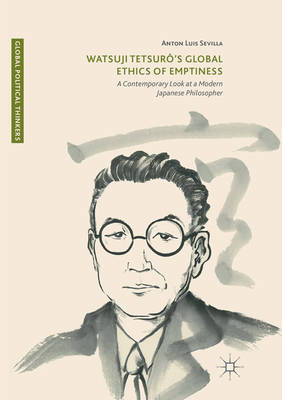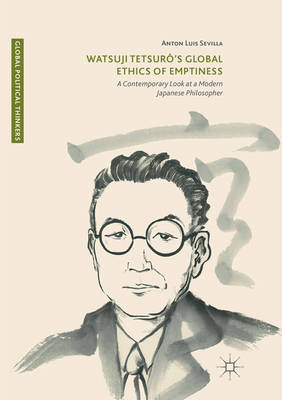
- Retrait gratuit dans votre magasin Club
- 7.000.000 titres dans notre catalogue
- Payer en toute sécurité
- Toujours un magasin près de chez vous
- Retrait gratuit dans votre magasin Club
- 7.000.0000 titres dans notre catalogue
- Payer en toute sécurité
- Toujours un magasin près de chez vous
Watsuji Tetsurô's Global Ethics of Emptiness
A Contemporary Look at a Modern Japanese Philosopher
Anton Luis SevillaDescription
This book is a rethinking of ethics and socio-political life through the ideas of Watsuji Tetsurô. Can we build a systematic philosophy of morality, society, and politics, not on the basis of identity and ego, but rather on the basis of selflessness? This book explores such an attempt by the leading ethicist of modern Japan. Using concrete examples and contemporary comparisons, and with careful reference to both English and Japanese sources, it guides the reader through Watsuji's ideas. It engages three contemporary issues in depth: First, how do we approach the moral agent, as an autonomous being or as a fundamentally relational being? Second, is it the individual or the community that is the starting point for politics? And finally, is ethics something that is globally shared or something fundamentally local? This book aims to be an informative and inspiring resource for researchers, students, and laypersons interested in Buddhist thought.
Spécifications
Parties prenantes
- Auteur(s) :
- Editeur:
Contenu
- Nombre de pages :
- 258
- Langue:
- Anglais
- Collection :
Caractéristiques
- EAN:
- 9783319863856
- Date de parution :
- 10-08-18
- Format:
- Livre broché
- Format numérique:
- Trade paperback (VS)
- Dimensions :
- 148 mm x 210 mm
- Poids :
- 453 g

Les avis
Nous publions uniquement les avis qui respectent les conditions requises. Consultez nos conditions pour les avis.






